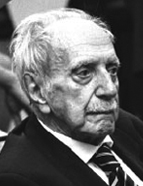

But how does one arrive at this result? França asks successively: what is the historian? What does he do? How does he do it? Why does he do it? Starting from the idea that the historian acts within the realm of a science of man and “of men in time,” in the formula of the Annales that he repeated, the how began with an “anticipated explanation – a hypothesis – that is hungry for facts in order to survive.” Rebelling against the path pointed out by Langlois-Seignobos and still endorsed by Louis Halphen, where the primacy of the document dominated, the historian affirms that, based on the hypothesis formulated and the state of the historiographical question confronted with the available information, the researcher may or may not prove his ideas. As for the what for , France’s response is decidedly non-pragmatic, referring to a category that is, if not ontological, at least transcultural: “What is the purpose of history? Perhaps it serves no purpose. I do not know what the purpose of history is. Just as I do not know the purpose of beauty, the purpose of the feeling of love, and all our effective equipment that seems to serve no purpose. I know that history will continue, that man will continue to make history, to think about history, to feel history. (...) With greater or lesser intensity, it does not matter. There has been no great civilisation that has not in some way taken care of its history, whether recent or remote.” (Eduardo d’Oliveira França, Conversa em torno de nosso ofício [Conversation about our craft], Anais de História, no. 6, 1974, p. 13). These statements appear in texts from 1951 and 1974, but they were a constant theme throughout Eduardo França’s intellectual life. Clearly inspired by Febvre against the idea of extracting lessons, let alone recipes for action, from history, he explicitly rejected Goethe’s conception that it was useful for freeing the present from the past, preferring the simplicity of Ortega’s formula: one studies history to know man. “And man is the historian’s food. (...) Human, in order to understand humanity.” (Eduardo d’Oliveira França, Considerações sobre a função cultural da História [Considerations on the cultural function of history], Revista de História , no. 8, 1951).
This work is financed by national funds through FCT - Foundation for Science and Technology, I.P, in the scope of the projects UIDB/04311/2020 and UIDP/04311/2020.
